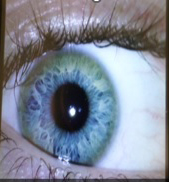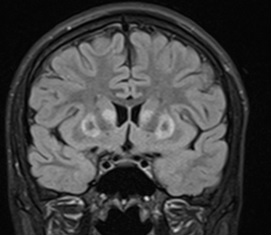What is Wilson Disease?
 Wilson Disease is a rare genetic disorder involving the disruption of copper metabolism leading to copper deposition in the brain, liver, and cornea of the eye, which can lead to organ dysfunction and death. Though rare, it is important to recognize this condition as treatment is eminently available, and early treatment can greatly limit disability and prevent morbidity and mortality. Liver involvement can lead to liver failure necessitating a liver transplant. Brain involvement can lead to psychiatric symptoms, trouble swallowing, tremor, dystonia, parkinsonism, and other movement disorder manifestations.
Wilson Disease is a rare genetic disorder involving the disruption of copper metabolism leading to copper deposition in the brain, liver, and cornea of the eye, which can lead to organ dysfunction and death. Though rare, it is important to recognize this condition as treatment is eminently available, and early treatment can greatly limit disability and prevent morbidity and mortality. Liver involvement can lead to liver failure necessitating a liver transplant. Brain involvement can lead to psychiatric symptoms, trouble swallowing, tremor, dystonia, parkinsonism, and other movement disorder manifestations.
 Wilson Disease should be considered in all pediatric, adolescent, or young adult patients with new onset psychiatry symptoms or abnormal movements. The diagnosis can be made by blood and urine tests, and genetic testing can be confirmatory. An eye exam can help detect copper deposition in the cornea (image to the right). MRI of the brain can also be informative (Image to the right). Asymptomatic siblings of patients with Wilson Disease should be screened for diagnosis as well.
Wilson Disease should be considered in all pediatric, adolescent, or young adult patients with new onset psychiatry symptoms or abnormal movements. The diagnosis can be made by blood and urine tests, and genetic testing can be confirmatory. An eye exam can help detect copper deposition in the cornea (image to the right). MRI of the brain can also be informative (Image to the right). Asymptomatic siblings of patients with Wilson Disease should be screened for diagnosis as well.




